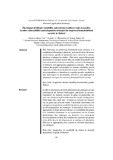| dc.contributor.author | Nyariki, Dickson M. | |
| dc.contributor.author | Tasokwa Kakota, V. M. | |
| dc.contributor.author | Mkwambisi, D. | |
| dc.contributor.author | Kogi-Makau, W. | |
| dc.date.accessioned | 2017-02-25T08:08:33Z | |
| dc.date.available | 2017-02-25T08:08:33Z | |
| dc.date.issued | 2009 | |
| dc.identifier.uri | http://hdl.handle.net/123456789/229 | |
| dc.identifier.uri | http://repository.seku.ac.ke/handle/123456789/1362 | |
| dc.identifier.uri | https://repository.ruforum.org/documents/impact-climate-variability-and-extreme-weather-events-gender-gender-vulnerabilities-and-0 | |
| dc.identifier.uri | https://news.mak.ac.ug/documents/RUFORUM/Tasokwa.pdf | |
| dc.description.abstract | The challenge to achieving household food security is a combination of biological, physical, and social factors. However, social factors, gender in particular, have received a cursory attention in adaptation studies. This study argues that proper assessment of gender factors that can render household food insecure in times of climate variability, can lead to development of effective and appropriate adaptation strategies. The study outlines the gender vulnerability to climate variability and its implication on the household food security in Malawi. The key recommendation is therefore to consider gender capabilities and challenges in developing effective and appropriate adaptation strategies for ensuring household food security. | en_US |
| dc.language.iso | en | en_US |
| dc.subject | food security | en_US |
| dc.title | The impact of climate variability and extreme weather events on gender: Gender vulnerabilities and adaptation strategies for improved household food security in Malawi | en_US |
| dc.type | Article | en_US |

